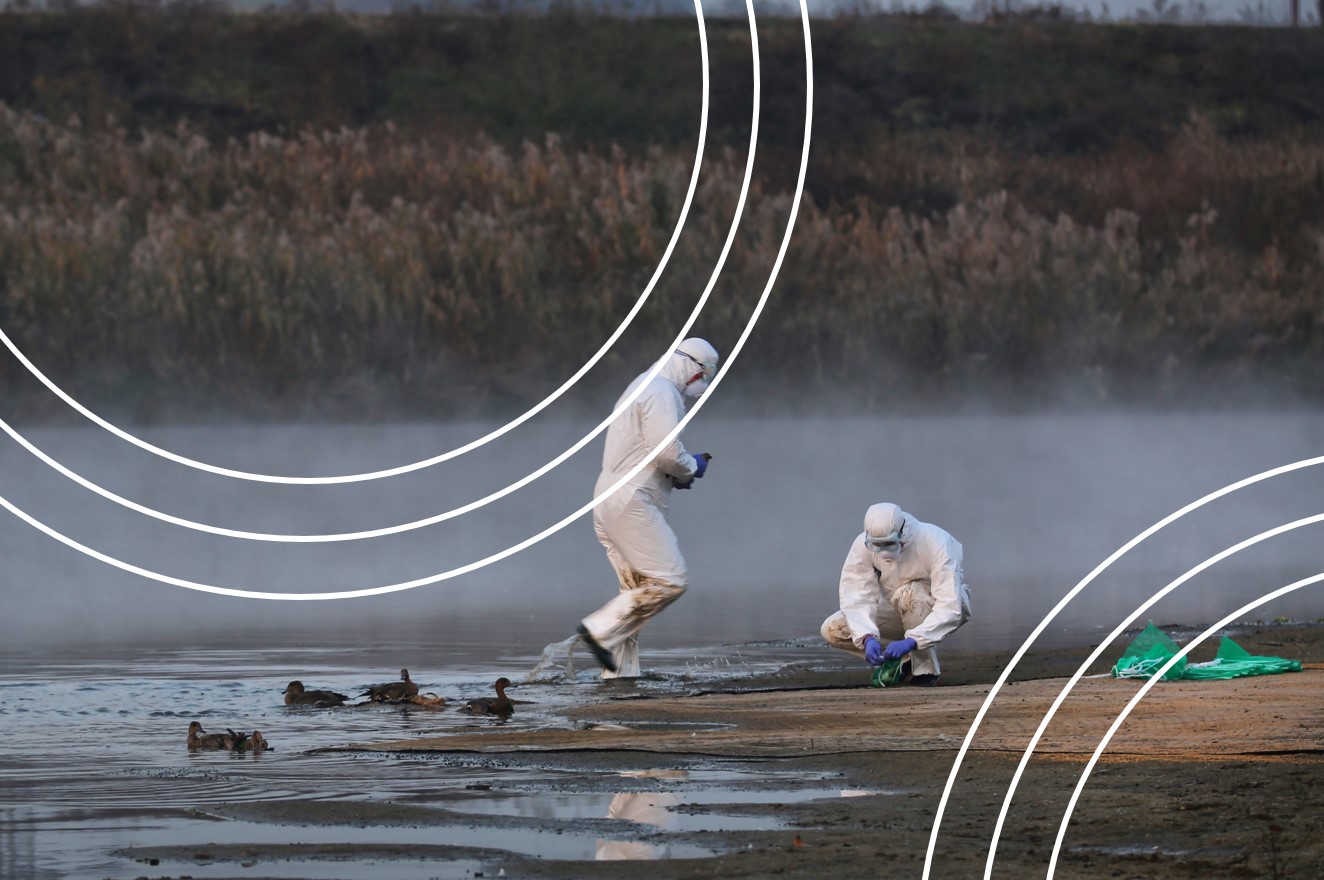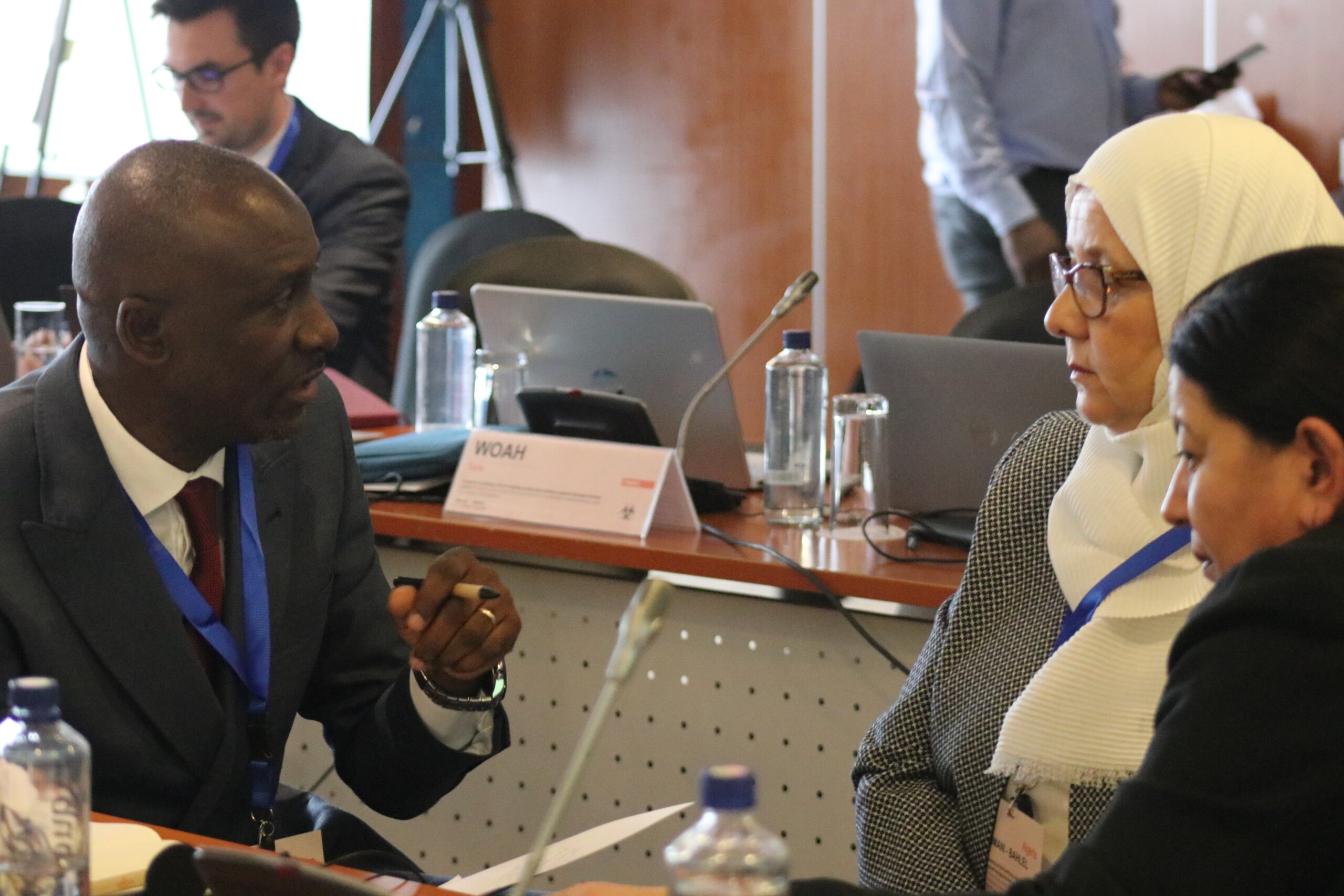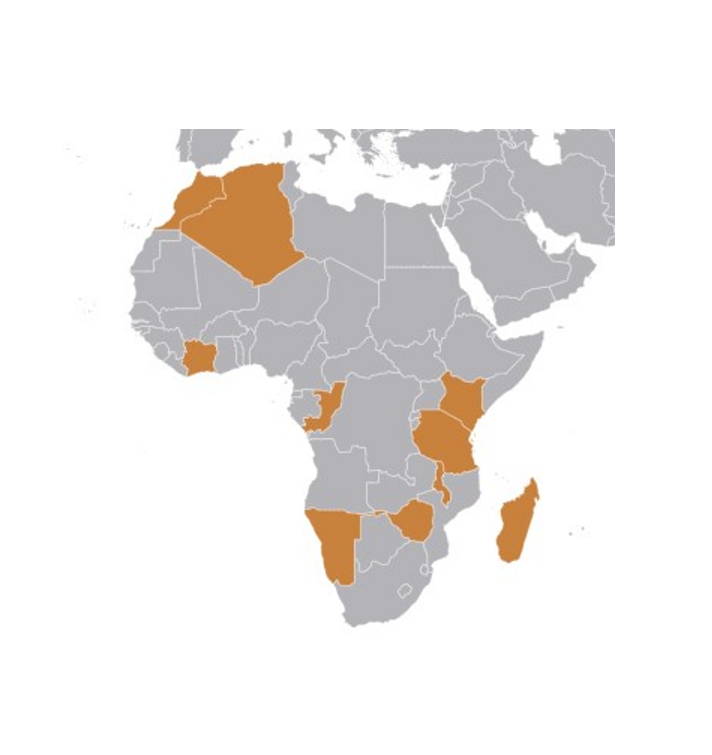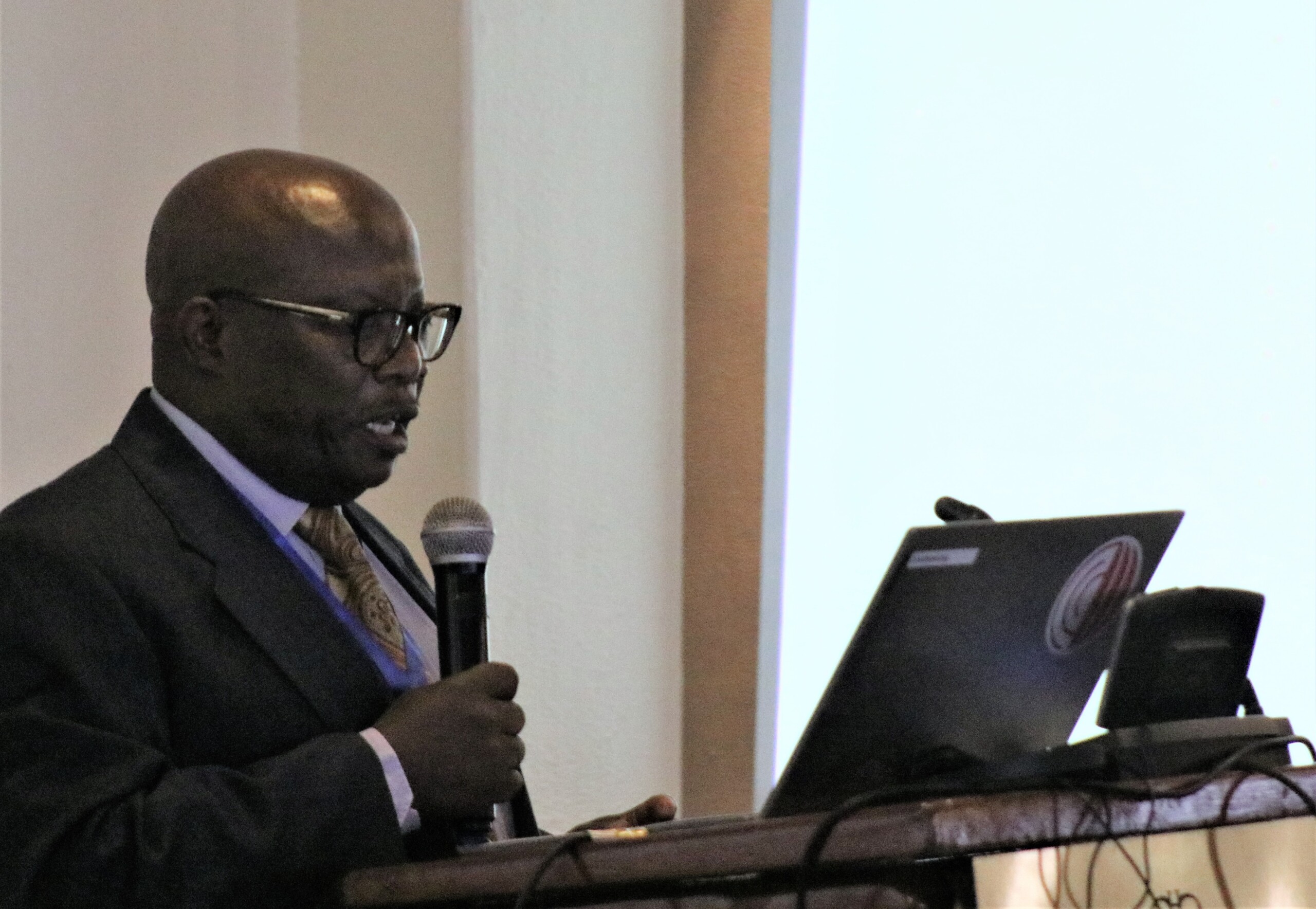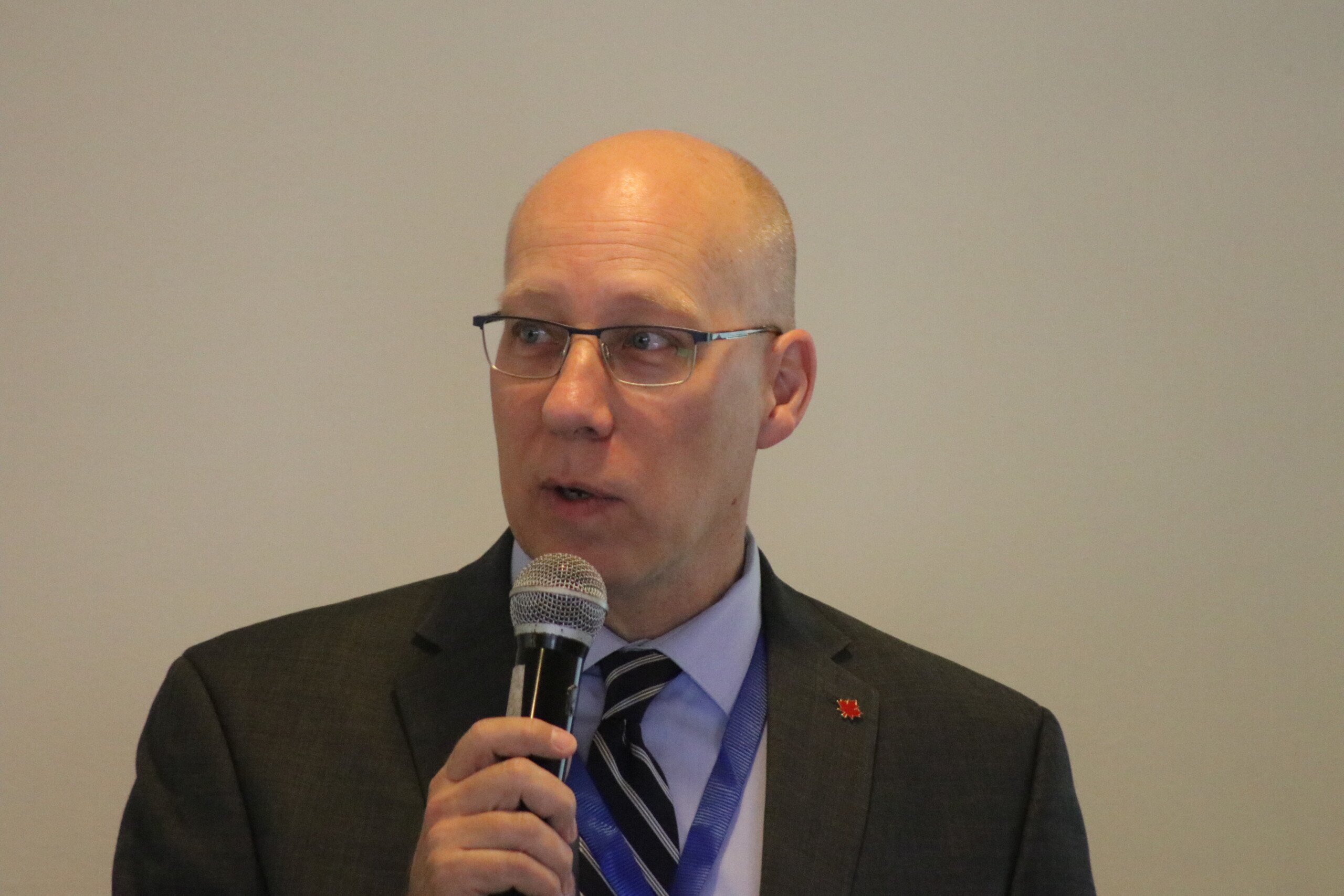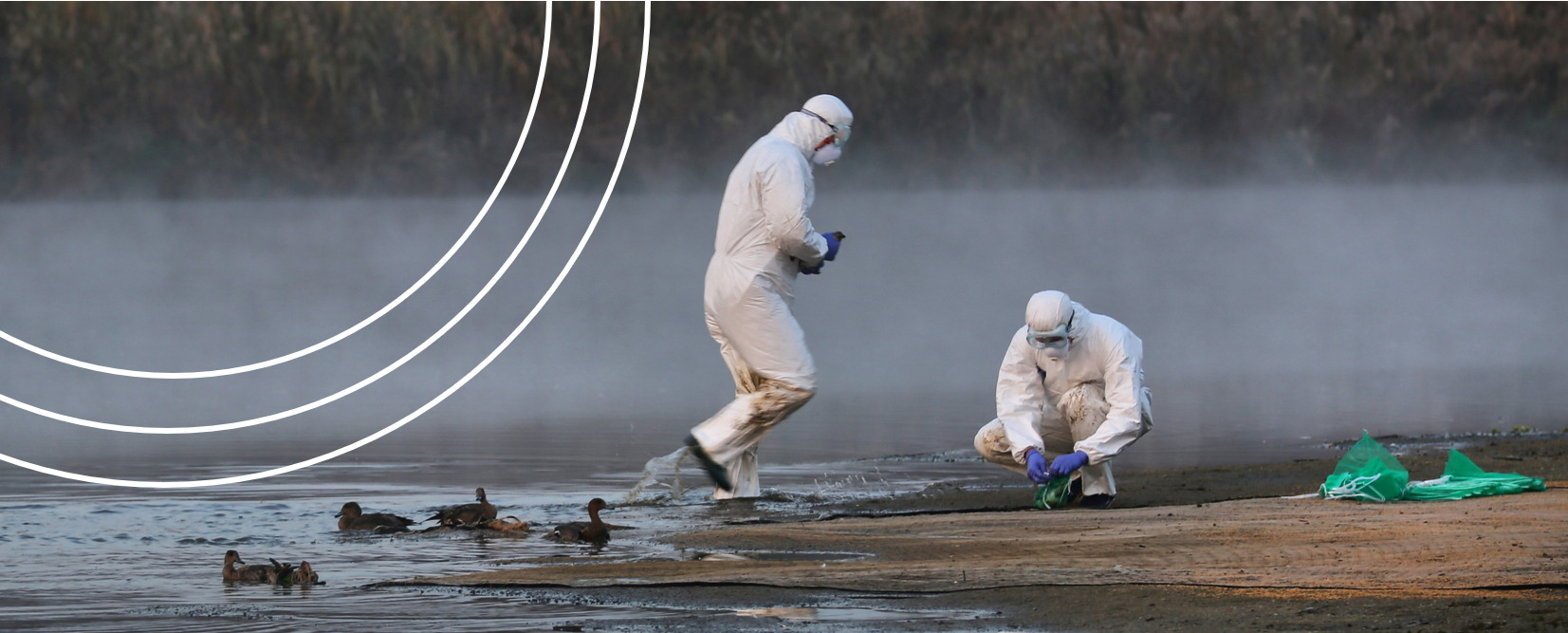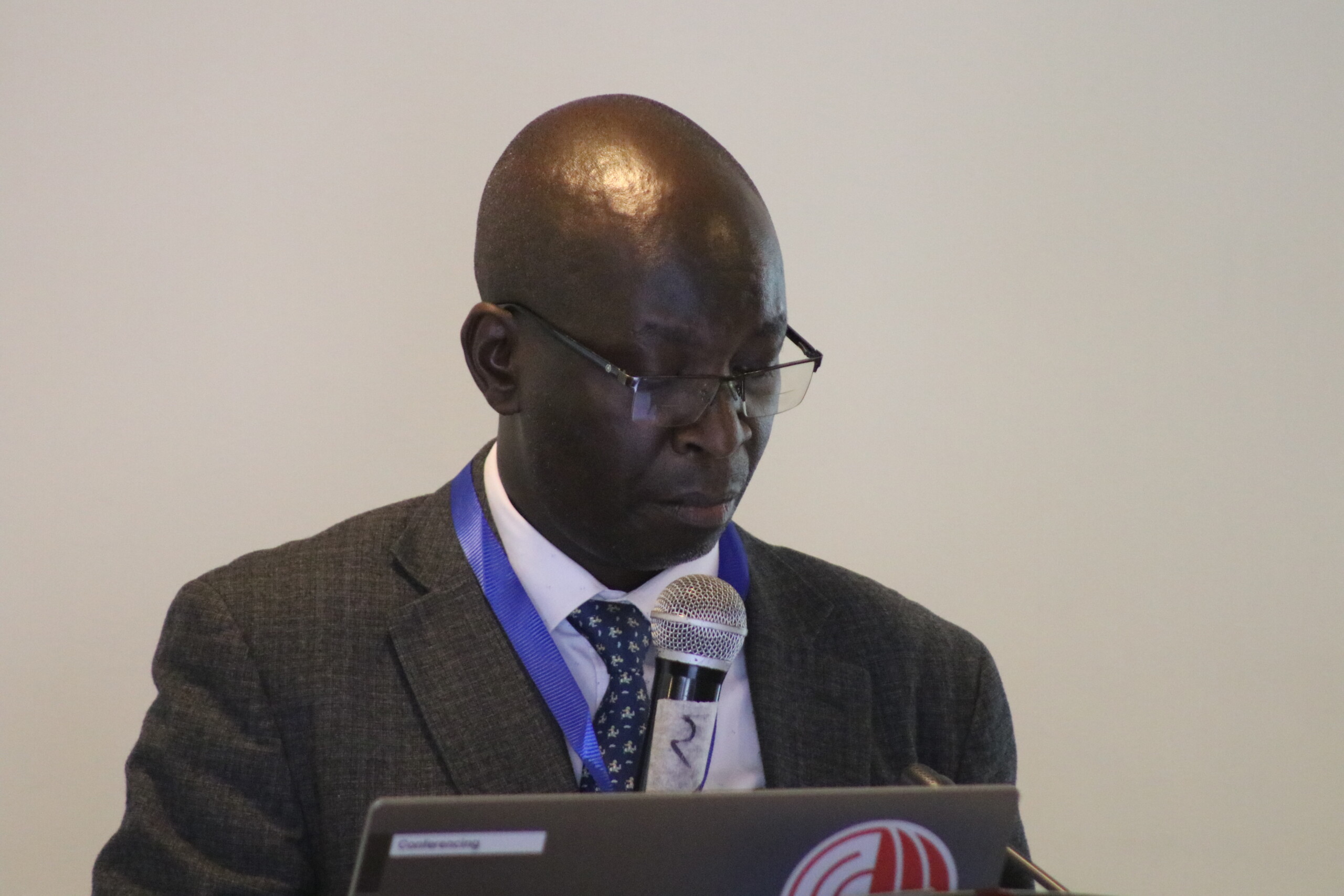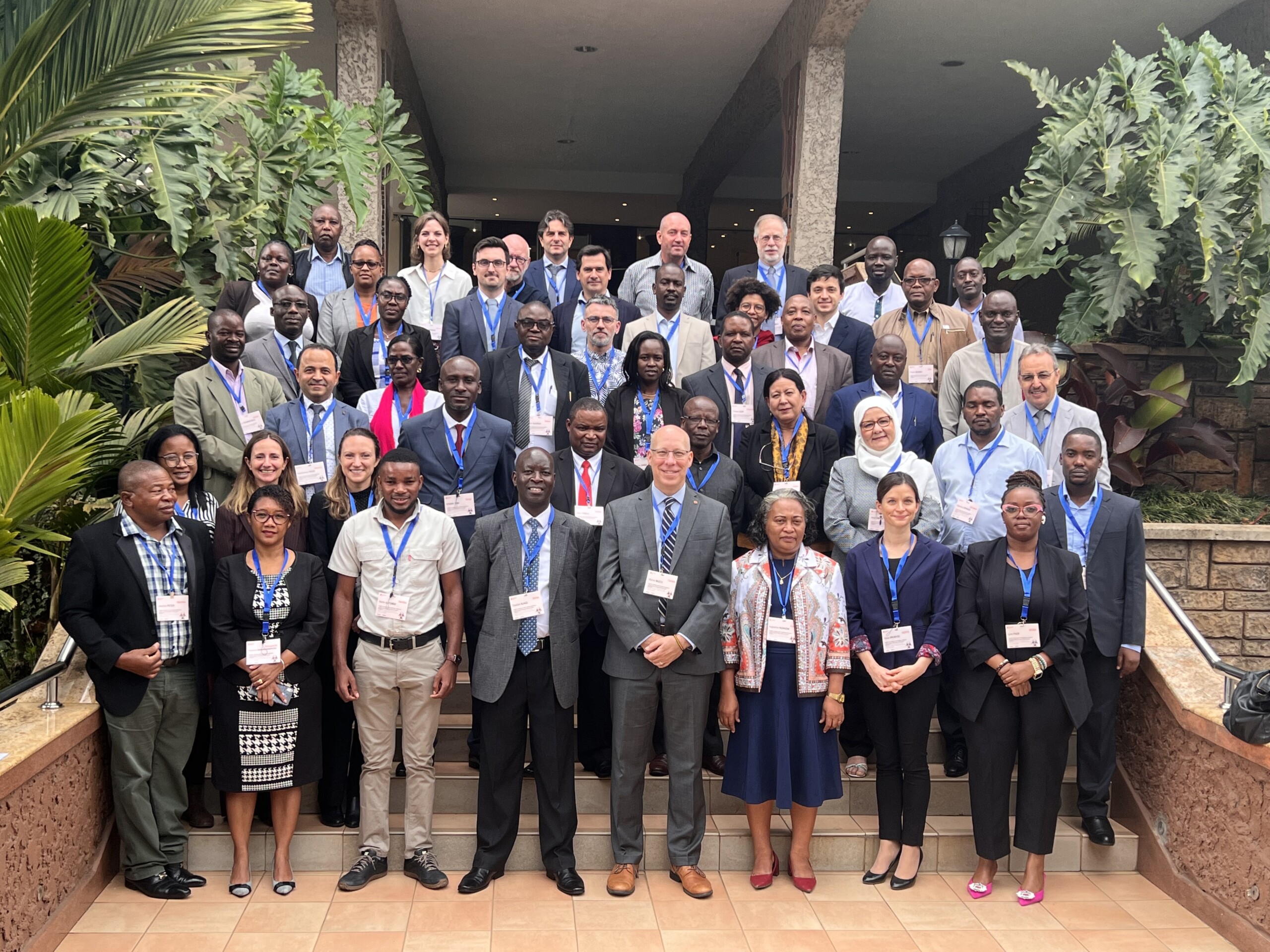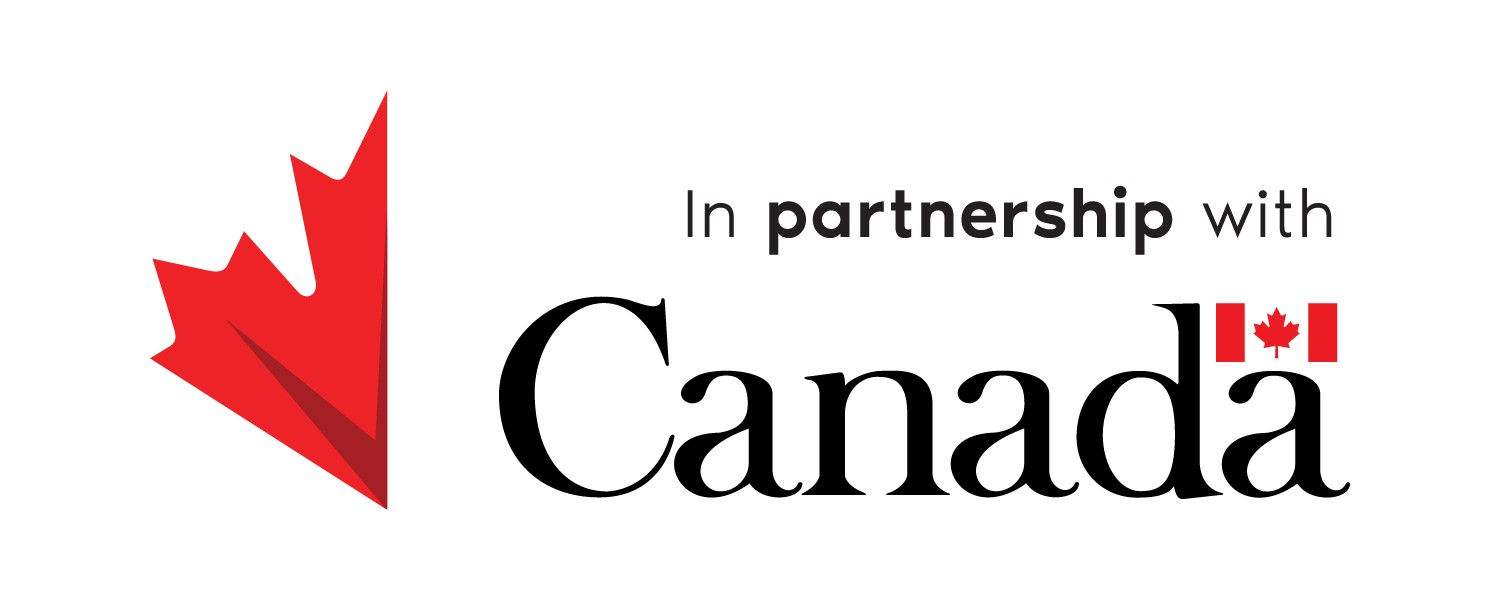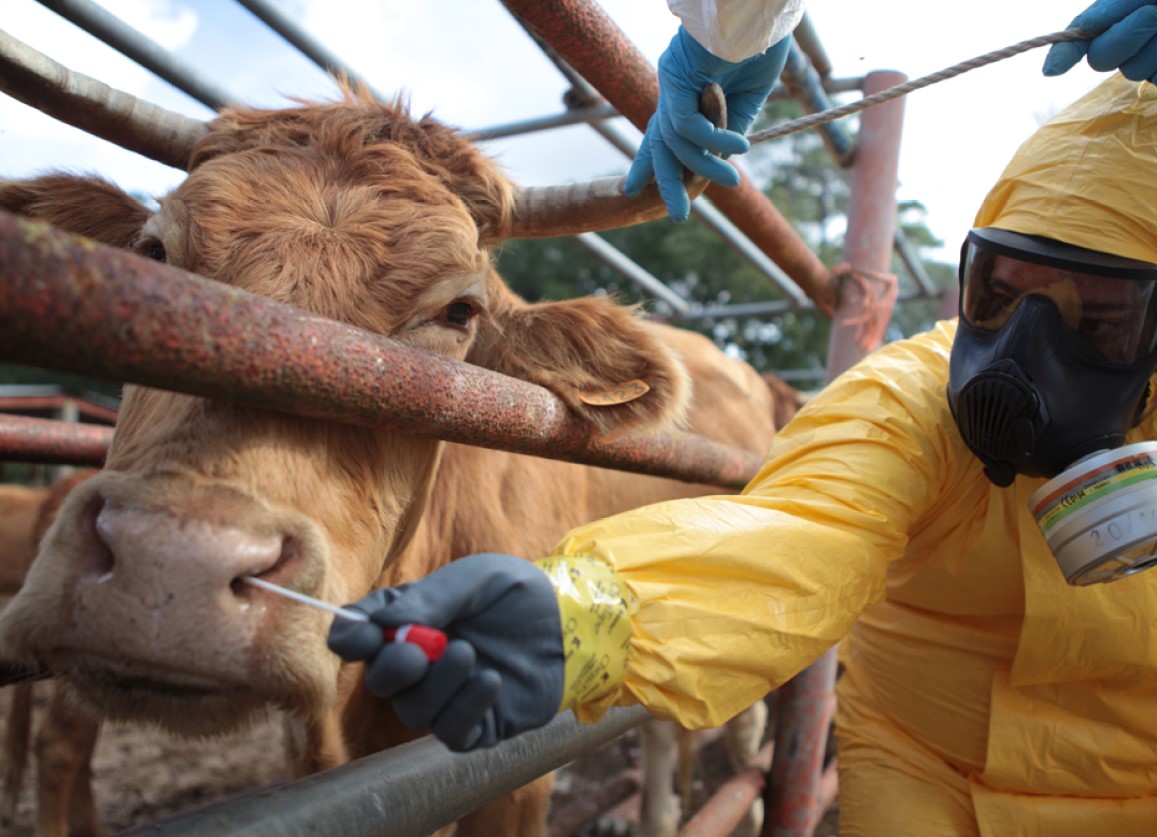
Country delegations of Congo and Algeria hold a discussion at the workshop. Picture © P. Bastiaensen (woah) 2023
Representatives of ten WOAH Members (countries) in Africa alongside leading experts in the various aspects of biological threat reduction converged in Nairobi from 14 – 16 March 2023 to lay the foundations for the improvement of Members’ abilities to respond to emergencies (including bio-crime and bio-terrorism events) as part of the Fortifying institutional resilience against biological threats (FIRABioT) Project.
The workshop was structured in a way that after presentations on each of the four pillars – emergency management, disease intelligence, sustainable laboratories, and veterinary legislation – delegates engaged with the experts in breakout sessions through which they identified national needs or gaps relevant to the just concluded pillar. The FIRABioT Project has been launched by WOAH, with support from Global Affairs Canada, to develop an organisation-wide sustainable emergency management system allowing it to respond to events linked to deliberate or accidental releases of biological pathogens in an agile and efficient manner, incorporate the most appropriate technical response to an emergency and ensuring business continuity.
The ten target countries selected following a call for Expression of Interest include Algeria, Congo (Republic), Cote d’Ivoire, Kenya, Madagascar, Malawi, Morocco, Namibia, Tanzania, and Zimbabwe.
WOAH and partners will support these countries over the next three years to implement actions that will improve some or all of the identified needs from the workshop.
During the workshop, representatives from the target countries had the opportunity to interact with and identify potential partners for their respective interventions, from various partner organizations, including Africa CDC, Biological Defence Laboratory (Portugal), EMC-AH (Food and Agriculture Organization, FAO), Interafrican Bureau for Animal Resources (IBAR), International Federation of Biosecurity Associations (IFBA), International Livestock Research Institute (ILRI), INTERPOL, Istituto Zooprofilattico Sperimentale dell’Abruzzo e del Molise (IZS, Teramo), National Institute for Communicable Diseases (NICD, South Africa), Onderstepoort Veterinary Research Institute (OVRI, South Africa), Pan-African Veterinary Vaccines Centre (AU-PANVAC), SEGA One Health (Indian Ocean Commission), United Nations Interregional Crime and Justice Research Institute (UNICRI), and the Verification Research, Training, and Information Centre (VERTIC).
Dr. Samuel Wakhusama – Sub-Regional Representative for Eastern Africa delivers his opening remarks at the workshop. Picture © P. Bastiaensen (woah) 2023
Dr. Samuel Wakhusama, the WOAH Sub-Regional Representative for Eastern Africa, who represented WOAH Regional Representative for Africa, and the WOAH Director General, informed participants that they were witnessing the broadening of WOAH’s mandate as the FIRABioT project would arguably be the first targeted “regional” attempt to bring animal health in Africa to the fore of biological threat reduction.
He further expressed excitement about the support opportunities that this project would open up for veterinary services from both WOAH and partners who may not be traditionally familiar with the animal health sector. He concluded his remarks by acknowledging Global Affairs Canada for their support to the project and to the Signature Initiative to Mitigate Deliberate Biological Threats in Africa.
In his opening remarks, Mr. Warren Mucci from the High Commission of Canada in Kenya who represented Global Affairs Canada at the workshop, highlighted that biological threats pose a significant risk to global health security, as they can cause widespread disruption regardless of international boundaries. He further noted that given that the majority of human infectious diseases are zoonotic, enhancing efforts to mitigate all manner of animal disease threats is essential to global health security.
He also acknowledged the need for a coordinated and collective response to biological threats, involving multiple partners, countries, and organizations – as demonstrated by the attendance of the workshop. As such Canada’s Weapons Threat Reduction Program (WTRP) was proud to be funding the initiative and looked forward to its outcomes.
Mr. Warren Mucci from the Canadian High Commission in Kenya. Picture © P. Bastiaensen (woah) 2023
Warren Mucci, Counsellor (Political and Public Affairs) – High Commission of Canada in Kenya
Dr. Obadiah Njagi – WOAH Delegate for Kenya. Picture © P. Bastiaensen (woah) 2023
Dr. Obadiah Njagi, the WOAH Delegate for Kenya in his remarks welcomed participants to Kenya and informed them that previous studies had identified West, Central and East Africa as regions having a high risk for zoonotic disease outbreaks. Despite that, empirical data on the epidemiology of high-risk pathogens is still limited. It is thus important that a multisectoral, multinational and multiagency approach is adopted to strengthen surveillance systems using a one health approach.
He went on to share with the audience some of the biosecurity measures Kenya has undertaken and called for more cooperation to achieve better results. He concluded by thanking the Canadian government and WOAH for their support through the project – and wishing delegates a pleasant stay in Nairobi.
Following the three-day workshop, delegates from the target countries developed a work plan through which WOAH will work closely with the veterinary services within the countries and identified partners to address the various needs identified throughout the workshop. The project is to run for three years with a budget of approximately 8 million Euros.
You can read more about WOAH’s Biological Threat Reduction Strategy here:
You can read more about FAO’s Good Emergency Management Practices here:
.
UNICRI has recently released the Prosecutor’s Guide to Chemical and Biological Crimes, freely available on their website. The purpose of the Guidebook is to provide police and civil prosecutors, and relevant investigative agencies, with guidance to support the successful prosecution of incidents involving the deliberate use of a chemical or biological agents. The Guidebook aims to provide awareness and insight into the current and emerging challenges related to the investigation and prosecution of such crimes. The guide can be downloaded from these links:
UNICRI also offers a series of capacity building and training courses: Table-top exercises (TTX), Building a case for the prosecution, Mock Trial and a Train the Trainer course. For more information about the Prosecutor’s guide or the trainings offered by UNICRI in this area, please contact Mr. Talgat Toleubayev, Regional Coordinator for South East and Eastern Europe, [email protected].
Group picture. Centre-front : Dr Obadiah Njagi, WOAH Delegate, Kenya (left) and Mr. Warren Mucci, Deputy High Commissioner of Canada, Kenya (right). Picture (c) Communication (woah) 2023.
